John Timmer
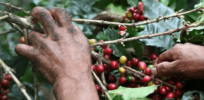
City-dwellers are gradually losing their ability to digest plant foods
Urban humans have developed trouble digesting plants while rural populations still have lots of the gut bacteria that break down ...

‘A finite pool of worry’: Why humans are unable to focus on climate change and the pandemic at the same time
It's safe to say that the first two years of the pandemic left a lot of people exhausted and emotionally ...
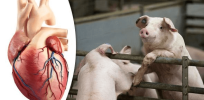
Recipient of gene-edited pig heart transplant survived for just two months. What can we learn from what went wrong?
A human patient with heart disease received a heart from a pig that had been genetically engineered to avoid rejection ...
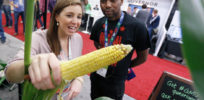
Trust in scientists high globally, Pew survey finds, but public still skeptical of GM crops
The good news is that there’s widespread trust in scientists and a strong desire to act on their findings on ...

Stem cell tourism: Shady treatments are being offered–even in the United States
[W]e're just starting clinical trials to determine if we can use [stem] cells effectively. But that hasn't stopped people from ...

An essential but ‘disturbing’ question: What if coronavirus is here for good?
Most of the optimistic ideas about what to do about SARS-CoV-2 involve engineering the virus's extinction. We could ramp up ...
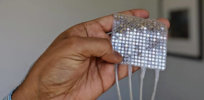
Turning thoughts to text with brain implants and artificial intelligence
For people with limited use of their limbs, speech recognition can be critical for their ability to operate a computer ...
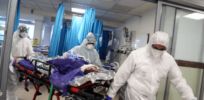
Worst-case scenario for coronavirus deaths ‘imperfect and has to rely on a number of assumptions’
On Monday [March 16], the COVID-19 Response Team at Imperial College London released a report that describes its efforts to ...
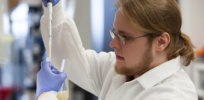
Re-engineering yeast to create biofuel appears possible, ‘but the effort involved is intimidating’
A little while ago, we covered the idea of using photovoltaic materials to drive enzymatic reactions in order to produce specific chemicals ...
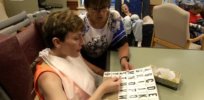
Chinese scientists may have figured out how to attack the protein created by Huntington’s damaged gene
Huntington's disease is caused by a dominant mutation, meaning that anyone who inherits it will develop the disease. ... Despite ...

Infographic: Meet Asgard archaea, a simple cell that just might look like one of our oldest relatives
The cells of all animals, plants, and fungi have an impressive complexity, with a variety of compartments specialized in various ...

Viewpoint: Elon Musk’s Neuralink dreams are a mix of reality and ‘science fiction’
So, how precisely is Neuralink pushing the envelope? ... A lot of Neuralink's vision may sound difficult to believe, but ...

Does testosterone impact moral decisions? Not according to this research.
The Trolley Problem is a staple of ethics courses and has even made its way into prime-time television. It's a ...
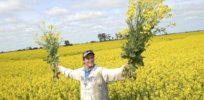
A tale of two GMO crops: Why were omega-3 producing plants developed faster than golden rice?
One of the arguments that has been advanced to promote genetically engineered crops is that .... [c]rops could be engineered ...
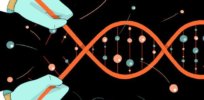
Why gene editing isn’t ready for treating human disease: It’s not ‘efficient enough’
Gene editing will likely always come with a bit of risk; when you're cutting and pasting DNA in millions of ...
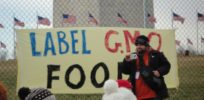
Video: Are biotech crops safe? A brief history of the GMO debate
Recent studies show the general public and the scientific community are deeply divided on the perceived safety of GMOs. Ars ...

Using stem cells to trace autism’s development to earliest days of pregnancy
Figuring out how autism starts is complicated. … [A] large international team obtained skin cells from eight autistic people and ...

Ancient Italian cemeteries tell tales of barbarian migration
We know very little of [Longobards] or any of the other barbarian tribes that roared through Western Europe other than ...

Genes play a role in educational achievement, but not as much as your parents’ education does
What's more important, genes or environment? …The advent of genomics has given us a new perspective on the role of ...
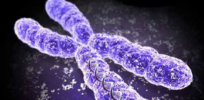
Using gene editing to merge an organism’s chromosomes into ‘one giant molecule’
Complex organisms have complex genomes. While bacteria and archaea keep all of their genes on a single loop of DNA, ...

Better than antibiotics? Bacteria-targeting viruses show potential against pneumonia
Like other cells, bacteria often find themselves victims of viral infections, dying as new viruses burst out to infect their ...

Can we delay aging by killing off old cells with powerful drug combo?
We have a good idea of what makes individual cells old. Things like DNA damage, shortened chromosome ends, and a ...

USDA wants your opinion on its GMO labeling proposal
There's nothing inherently unsafe about genetically engineering crops or agricultural animals. ... But the public has been consistently uneasy about ...

Ars Technica decision to reject reporting on latest cellphone scare study illustrates how journalists apply science literacy
[Recently], a fellow editor emailed me a link to yet another study purporting to show that cellphone use could be ...
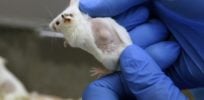
Modeling human tumors in mice can be problematic—here’s why
[A] new study [read full study] suggests that an unfortunate side effect of ... evolutionary changes is that human tumors are ...

Twist on truth: Knowledge, such as on GMOs, can lead to a rejection of the scientific consensus
[A] new study out [August 22nd] joins a number of earlier ones in indicating that scientific knowledge makes it easier ...

When genetics has no answer: Heart disorder patients gain knowledge, but no help
Getting a better understanding of a disease can open all sorts of possibilities for better treatments, even ones tailored to ...
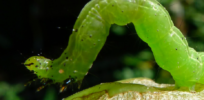
Researchers ‘evolve’ new Bt toxin that could fight insect resistance to GMO crops
The GLP aggregated and excerpted this blog/article to reflect the diversity of news, opinion and analysis. Bacillus thuringiensis (Bt) crops ...

